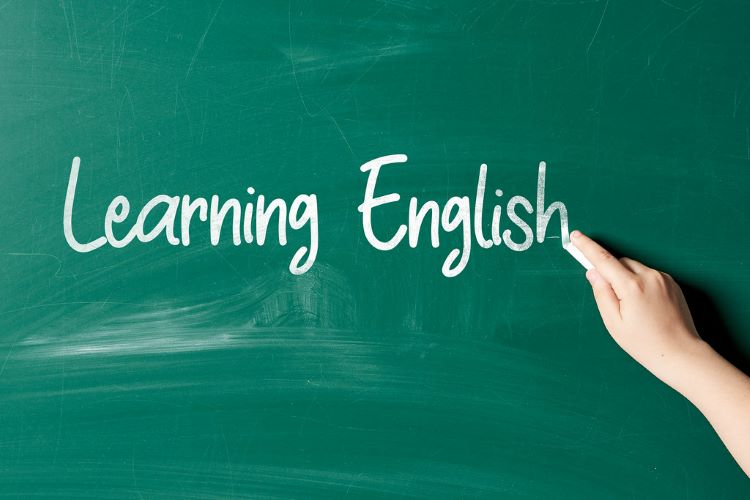A phrasal verb is a phrase made up of a verb and one or more particles that functions as a single unit with a meaning that is different from the meanings of the individual words. For example, “pick up” in the sentence “Can you pick up the kids from school?” has a different meaning than the verb “pick” alone. The meaning of a phrasal verb can sometimes be difficult to understand based solely on the individual words in the phrase, making them a challenging aspect of the English language for non-native speakers.
Also Read: What is the Best App for Learning English? How to Speak English Fluently?
Importance of Phrasal Verb in the English Language? Example of Some Phrasal Verbs
Phrasal verbs are an important aspect of the English language because they are commonly used in everyday speech and writing. They are also often informal and idiomatic, which means that they are used in a way that is particular to a specific language or culture. By understanding phrasal verbs, a learner of English can improve their ability to communicate effectively and understand native speakers more accurately. Additionally, phrasal verbs can add nuance, emphasis, and detail to language, making it a more descriptive and expressive tool. However, it is important to note that phrasal verbs can also be difficult for non-native speakers to understand and use correctly, making them a challenging aspect of the language to master.
Let’s check out some important phrasal verbs examples listed with meaning.
List of 20 Phrasal Verbs List with Meaning
Here are 20 phrasal verbs list with their meanings:
- “Take on” – hire, as in “The company is taking on new employees.”
- “Put up with” – tolerate, as in “I can’t put up with her behaviour anymore.”
- “Set up” – establish, as in “They set up a new business last year.”
- “Hand in” – submit, as in “I need to hand in my homework by Friday.”
- “Come in” – enter, as in “Please come in and take a seat.”
- “Take over” – assume control, as in “The new manager is taking over next week.”
- “Wake up” – become conscious, as in “I woke up feeling refreshed this morning.”
- “Pick up” – lift or collect, as in “Can you pick up the kids from school?”
- “Go through” – examine or experience, as in “I need to go through my emails before the meeting.”
- “Hold on” – wait, as in “Hold on, I need to take this call.”
- “Let go” – release, as in “She finally let go of her grudge against him.”
- “Bring up” – mention or raise, as in “Let’s not bring up that topic again.”
- “Look for” – search for, as in “I’m looking for my keys, have you seen them?”
- “Put out” – extinguish, as in “Can you put out the candles before you leave?”
- “Turn down” – reduce or reject, as in “I turned down the offer because it wasn’t what I was looking for.”
- “Work out” – exercise or resolve, as in “I try to work out every day to stay in shape.”
- “Put together” – assemble or combine, as in “Can you put together a proposal for the meeting tomorrow?”
- “Get through” – complete or manage, as in “I hope we can get through this project on time.”
- “Find out” – discover or learn, as in “I need to find out the details before I can decide.”
- “Take away” – remove or carry off, as in “Can you take away the dishes when you’re done eating?”
List of Some More Important Phrasal Verbs with Meaning
Here are some examples of phrasal verbs:
- “Turn off” – switch off, as in “Turn off the lights.”
- “Look after” – take care of, as in “Can you look after the dog while I’m gone?”
- “Get up” – rise from bed, as in “I need to get up early tomorrow.”
- “Put off” – postpone, as in “I’m putting off the meeting until next week.”
- “Break down” – malfunction or fail, as in “My car broke down on the way to work.”
- “Take in” – understand, as in “I couldn’t take in what he was saying.”
- “Come across” – encounter, as in “I came across an old friend at the grocery store.”
- “Get together” – meet, as in “Let’s get together for dinner next week.”
- “Run out” – exhaust or finish the supply of, as in “I ran out of milk this morning.”
- “Turn out” – the result, as in “The party turned out to be a lot of fun.”
Conclusion
In conclusion, phrasal verbs are an integral part of the English language and play a significant role in everyday communication. They can add meaning, nuance, and emphasis to language and are used in both formal and informal settings. However, phrasal verbs can also be challenging for non-native speakers to understand and use correctly, making them a key aspect of the language that requires special attention and practice. By familiarizing oneself with common phrasal verbs and their meanings, learners of English can improve their communication skills and better understand native speakers.
Also Read: Best App to Learn English Speaking Fluently: Check Out the English Learning Platforms






